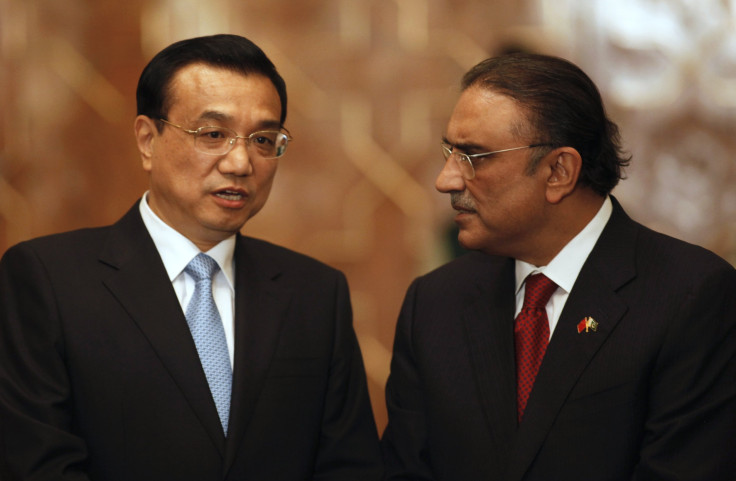Chinese Premier In Pakistan: A Delicate Visit As India Warily Watches

Chinese Premier Li Keqiang has vowed to strengthen ties with Pakistan and help resolve the country’s energy crisis, one day after departing Pakistan’s hostile rival and neighbor, India.
The Pakistan Tribune reported that trade between Beijing and Islamabad, which reached an unprecedented $12 billion figure last year, is targeted to climb to $15 billion within the next two years. (In comparison, Chinese trade with India exceeded $61 billion last year, and could soar to $100 billion by 2015.).
"The purpose of the visit is to devise a strategy to bolster future cooperation and friendship," Li said. "We will strengthen [our] strategic partnership with Pakistan in whatever the international scenario and circumstances are."
The premier is also likely interested in establishing good relations with Pakistan’s incoming prime minister, Nawaz Sharif, whose Pakistan Muslim League-N (PML-N) won the general election two weeks ago.
During the interim, as Sharif forms his government, Li, on his first official overseas tour, met with outgoing President Asif Ali Zardari and caretaker Prime Minister Mir Hazar Khan Khoso on Wednesday.
"Friendship with China is a cornerstone of our foreign policy," Zardari said at an luncheon in honor of Li.
Li is expected to meet with Sharif on Thursday.
The two sides also signed a number of memoranda of understanding related to energy, cultural, scientific and trade issues.
Power generation is a particularly crucial issue for Pakistan – a country where power cuts of 20 hours per day are not unheard of. Indeed, the poor showing of Zardari’s Pakistan People’s Party in the recent election was partially blamed on his administration’s failure to provide stable and consistent electrical power to the public. Prolonged electrical shutdowns have sparked a number of violent protests across the country, while virtually crippling manufacturing.
Pakistan’s fragile economy cannot withstand such lengthy and repeated power outages.
“Our two sides should focus on carrying out priority projects in connectivity, energy development and power generation and promoting the building of a China-Pakistan economic corridor,” Li told Pakistani media. “Both sides have a desire to converge China’s strategy to boost domestic demand and develop its western region and Pakistan’s desire to further deepen its economic development.”
The Times of India reported that during Li’s visit to Pakistan, the Chinese premier will try to sell small helicopters and airplanes to Islamabad. In exchange, Pakistan wants China to help finance and construct (or upgrade) a number of major infrastructure projects, including the railway system.
One particular project that China has already undertaken in Pakistan has India extremely nervous.
The Pakistanis have allowed the Chinese to take over operation of the deep-sea port in Gwadar, near Pakistan’s border with Iran, and not far from the Straits of Hormuz, perhaps the world’s most important oil shipping corridor.
New Delhi is gravely concerned that control of the port will lead to China’s increased political and economic influence in the Middle East and eventually Chinese naval vessels in the geostrategically key region and even the establishment of a military base at some point in the future.
Waqas Rafique, a columnist, wrote in the Pakistan Tribune that Pakistan expects Gwadar to open “a wealth of economic opportunities in the midst of the political turmoil” in Baluchistan, Pakistan’s vast and restive western province, by serving as the cornerstone of a new economic hub that might also include Afghanistan as a partner.
In response to China’s moves in Gwadar, India plans to upgrade and operate a deepwater port in Chabahar, Iran, which is located just 50 miles to the west of Gwadar. India has already committed some $100 million to this project.
Interestingly, during his arrival in Pakistan Wednesday, Li appeared to take a swipe at India’s claims in the disputed Kashmir region -- and perhaps the U.S. as well.
“I wish to reiterate solemnly China’s continued firm support to Pakistan in its efforts to uphold independence, sovereignty and territorial integrity,” Li said in a possible reference to India and to the United States, which angers many with drone strikes targeting militants in Pakistan.
© Copyright IBTimes 2024. All rights reserved.











